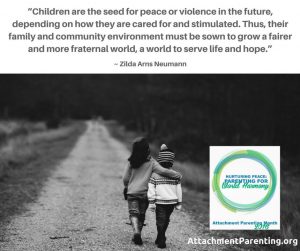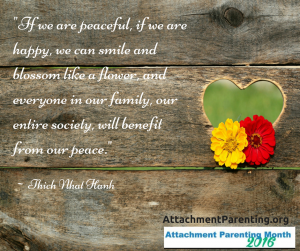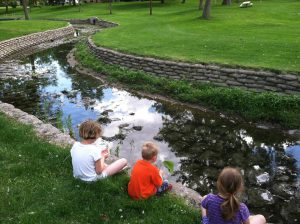Category: AP Month
Heart to Heart
Add your own photo to API’s Community of Peace and “heart” your favorite.
Nurturing peace for world harmony
API honors parents and caregivers as the ultimate peacemakers.
Children internalize the values we transmit over time through our own actions and interactions. Parenting infused with peace and harmony informs the responses of our future global leaders as they face conflict.
We aim to support parents in peaceful and harmonious impulses, so they might be reflected in future global conditions.
Parents and caregivers who foster peaceful relationships with their children make real contributions toward this global goal.
Peace and harmony can seem like a distant goal when technology constantly broadcasts world news to our wrist, the palm of our hands, our lap, or desk. Unprecedented access to the people, places, and events around the world is both wonderful and the cumulative stresses can silently build up and weigh on us without our awareness.
The relentless news cycle features conflict with rarely a hopeful note. Loud discord streams continuously and is a pervasive presence in our social lives. Conflict and outrage are regularly stirred in this reactionary stew where micro-aggression, triggers, and general incivility feel like inescapable behavioral norms.
Our success as a species is based on our social dependency, which in turn ensures that conflicts are a regular feature of our lives. It’s impossible to live with so many different fellow humans and avoid conflict.
The good news is something we don’t often hear: We’re not predisposed to violence. Moreover, violence is not the only or natural result of being a social species. Peace can be our response, our way of life, but we must continuously and consciously choose it so that it becomes a well-worn groove.
Most of us have the ability to make choices about our behaviors and learn different behaviors, but being able to does not mean that change is easy or quick.
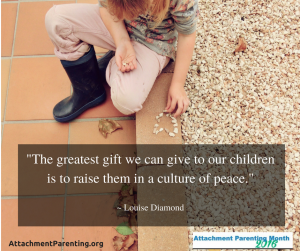 Children imitate and learn new things with surprising ease, so we can intuitively understand how peace and harmony in the home can lead children to rely on peaceful interactions over time. These are lifetime learning experiences that, when internalized, can persist across generations. And this is our motivation and incentive to keep seeking and trying peaceful and harmonious parenting.
Children imitate and learn new things with surprising ease, so we can intuitively understand how peace and harmony in the home can lead children to rely on peaceful interactions over time. These are lifetime learning experiences that, when internalized, can persist across generations. And this is our motivation and incentive to keep seeking and trying peaceful and harmonious parenting.
The advent of instant access to everything has shifted the ground under our feet. The frequency and degree of our exposure to violence has increased dramatically in just a few years. A cultural acceptance of violence and, in some cases, even glorification of it can have the effect of acceptance. It’s not that we like it necessarily: It’s just that it’s our new normal.
The overwhelming focus on negative aspects of life and conflict in the news colors our perception as well and can either numb or desensitize us or increase our general anxiety load, or leave us feeling helpless over events outside our control.
This October, during AP Month, we’re working to surround parents in peace and harmony. We aim to support parents in building family lives and parent-child relationships that are as peaceful and harmonious as possible. We’ll discover ways to cope and counterbalance the effects of negativity and uplift and honor the positive, hopeful, loving, and secure aspects of our world.
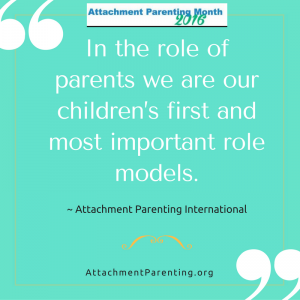 Parenting toddlers who refuse to eat or sleep or (fill in the blank) seem a far cry from world peace and harmony, but we invite you to examine and explore the connections. It may not feel like it in any given moment, but cumulative parent-child interactions become an influence for good that is greater than a collection of moments when we managed to get out the door on time.
Parenting toddlers who refuse to eat or sleep or (fill in the blank) seem a far cry from world peace and harmony, but we invite you to examine and explore the connections. It may not feel like it in any given moment, but cumulative parent-child interactions become an influence for good that is greater than a collection of moments when we managed to get out the door on time.
These days, when we have to work a little harder to surround ourselves with sustaining goodness, API helps parents tip the balance.
The Reality
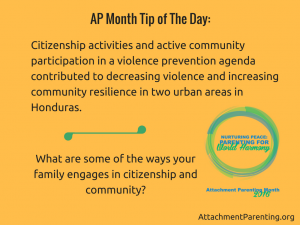 Statistics from The Peace Alliance and WHO we’d like to turn around:
Statistics from The Peace Alliance and WHO we’d like to turn around:
- If violence containment spending were represented as a discrete industry, it would be the largest industry in the U.S. economy — larger than construction, real estate, professional services, or manufacturing.
- If violence containment spending were represented as a discrete national economic entity, it would be the 7th-largest economy in the world — only slightly smaller than the UK economy.
- Violence containment spending is 4 times higher than the national defense budget.
- Public sector spending on violence containment spending accounts for 10.8% of GDP while private sector spending is 4.2% of GDP.
- If U.S. federal violence containment spending was reduced by 5% each year for 5 years, the $326 billion saved funds would be sufficient to entirely update the energy grid, rebuild all levies, and renew the nation’s school infrastructure.
Everyday Conflict
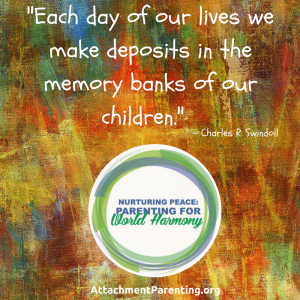 The impact of conflict in our daily lives generates a feeling that’s hard to escape:
The impact of conflict in our daily lives generates a feeling that’s hard to escape:
“As I get caught up in the opinions and harsh words being thrown around Facebook and other social media outlets, I can’t help but think about the message we are trying to make a reality in our home. And I wonder what would happen if we, as adults, stopped shouting long enough to listen and dropped our pride long enough to learn from the person who’s speaking.” ~ Storyline
Domestic Violence
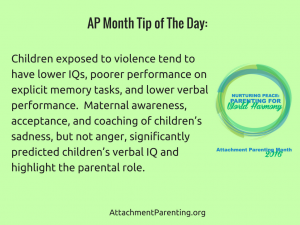 Domestic violence is a reality for many families and children and many dedicated professionals work to change this. The more support we build for families and communities in peace, the less prevalent intimate violence will be over time.
Domestic violence is a reality for many families and children and many dedicated professionals work to change this. The more support we build for families and communities in peace, the less prevalent intimate violence will be over time.
More than 5 million children are exposed to physical domestic violence each year. We know from the ACE study that for 95% of children exposed to domestic violence, there is also substance abuse, mental illness, neglect, abuse, or incarceration within their home.
Domestic violence can teach children negative and harmful lessons:
- Violence is normal
- Conflict is resolved by violence
- Abuse should be kept secret
- Negative behavior can be excused
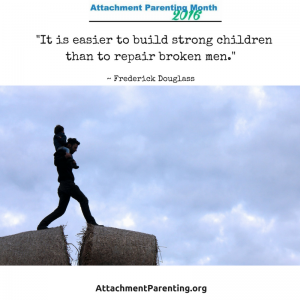 Statistically, we will all come into contact with children who are exposed to domestic abuse. As adults, we need to counteract the lesson of domestic violence with kindness, empathy, trust, and compassion. Just as we don’t expect children to know math before we teach them math, we need to help children develop healthy skills, such as conflict resolution, problem solving, emotion regulation, and calming strategies. Most importantly, we need to model and encourage healthy relationships.
Statistically, we will all come into contact with children who are exposed to domestic abuse. As adults, we need to counteract the lesson of domestic violence with kindness, empathy, trust, and compassion. Just as we don’t expect children to know math before we teach them math, we need to help children develop healthy skills, such as conflict resolution, problem solving, emotion regulation, and calming strategies. Most importantly, we need to model and encourage healthy relationships.
Media
Media is pervasive and may play a role:
“‘TV teaches people that aggressive behavior is normative, that the world around you is a jungle when it’s actually not so.’ In fact, research has shown that the more television a person watches, the more likely he or she is to believe that ‘most people would take advantage of you if they got a chance.'”
“In the United States, exposure to media violence is becoming an inescapable component of children’s lives. With the rise in new technologies, such as tablets and new gaming platforms, children and adolescents increasingly are exposed to what is known as ‘virtual violence.’ This form of violence is not experienced physically; rather, it is experienced in realistic ways via new technology and ever more intense and realistic games. The American Academy of pediatrics continues to be concerned about children’s exposure to virtual violence and the effect it has on their overall health and well-being. This policy statement aims to summarize the current state of scientific knowledge regarding the effects of virtual violence on children’s attitudes and behaviors and to make specific recommendations for pediatricians, parents, industry, and policy makers.”
Hope
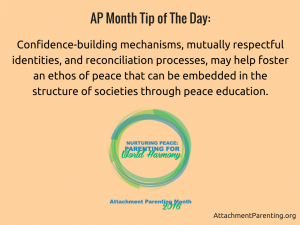 While we need to be clear-eyed about the challenges, we work this month to promote a season of hope and agency.
While we need to be clear-eyed about the challenges, we work this month to promote a season of hope and agency.
There are many organizations who are working to turn things around on a global level:
“Global philanthropic support for efforts to prevent, mitigate, and resolve conflicts totaled $283 million in 2013… 288 foundations awarded nearly 2,000 grants in support of more than 1,200 organizations working for peace, justice, diplomacy, and national and global security, from conducting research on the prevention of nuclear terrorism to supporting citizen journalism in Egypt. The top 15 peace and security funders…provided 67% of the $283 million awarded in 2013, and 70% of the funders included in the study awarded less than $250,000 each, and 37% gave less than $50,000.” ~ Philanthropy News Digest
And there are organizations that work on multiple levels including community and individual, even parenting, such as:
- Attachment Parenting International (API)
- National Partnership to End Interpersonal Violence Across the Lifespan (NPEIV)
- Nonviolent Communication (NVC)
Peace More Than War
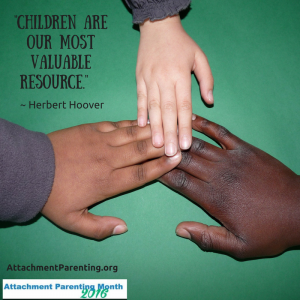 The good news is that the news may be more good than bad if we look at the biggest picture:
The good news is that the news may be more good than bad if we look at the biggest picture:
“Humans are more often at peace than at war; we cooperate more than we conflict. In fact, there is mounting evidence that cooperation may be a central facet in explaining our success as a species. On the other hand, this does not mean we are egalitarian, nonviolent pacifists. Human nature is neither simple nor linear. Our core adaptation is one of cooperation, but we can and do compete — a lot — and often use aggression to do so.” ~ Being Human
Or these articles:
- “The World is Not Falling Apart” on Slate
- The Council of Foreign Relations’ “Human Security Report”
API’s Stance
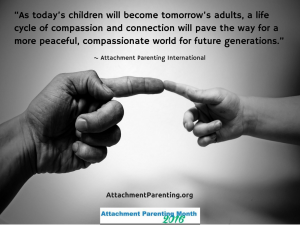 Suffering still persists without a doubt, and violence is a fact for far too many of us. But this October, we’ll work to support parents and families find and share the peace because:
Suffering still persists without a doubt, and violence is a fact for far too many of us. But this October, we’ll work to support parents and families find and share the peace because:
“Ultimately this is about showering people in love—even the people who we so strongly disagree with.” ~ Storyline
Read the AP Month 2016 Research Paper in its entirety, including links to specific studies, on AP Month Central.
Daily tip: Peace education
Reflections
Add your own photo to API’s Community of Peace and “heart” your favorite.
A prayer for the motherless daughter
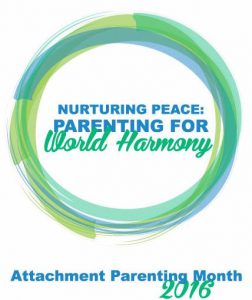 Lesehu was her name. She was only 18 months old when her mama — like so many in Botswana, Africa — died from AIDS.
Lesehu was her name. She was only 18 months old when her mama — like so many in Botswana, Africa — died from AIDS.
I met her at the daycare center that my friend Marie Jose, a Catholic nun with 20 years of service in that country, had quickly put together to address the emergency of the alarming number of orphaned children as the pandemic took more lives each day.
As the numbers of orphans at the center grew, the children took care of the toddlers while the overwhelmed volunteers worked to give them all a good meal and make sure they were safe for the time they were there.
Sister Marie asked me what could be done for this little baby, Lesehu, who was so despondent that she barely moved at all. She did not eat, would not walk, and she had the expressionless face of a person in deep shock. Her mama was gone. Her world had completely changed in the most incomprehensible way. She was like a boat whose moorings had been severed, floating with nothing to anchor to, adrift in feelings that were too much for a tiny person of such a tender age.
I gently put her in my lap and hummed softly to her heart. After some time, she let me feed her while my concerned friend watched and nodded that this was good. Soon after, the traumatized child fell asleep in my arms. When it was time to go, I left some Bach Rescue Remedy with the caretakers for her. I placed a feather light kiss on her little forehead with all the force of my love.
No parent wants another family’s child to be left in a bad situation. So we make donations where our contribution will help. We might sign petitions or call our representatives to try to have impact on the conditions that cause such calamity. These actions have important value. But in this world of ours, there will always be those little ones who find themselves dependent on the care of strangers since their mama is no longer there.
 We know from emerging scientific study that the energy, the potent essence, of thought and heartfelt concern does indeed travel across time and space to reach the ones for whom we are directing our attention. The field of nursing has a substantial body of research about the positive impact of prayer on the recovery of patients after surgery. Plants grow measurably better when someone has sent them positive energy. The Institute of HeartMath conducts pioneering work on the reach of the quantifiable energy of the human heart as it communicates to others across great distances.
We know from emerging scientific study that the energy, the potent essence, of thought and heartfelt concern does indeed travel across time and space to reach the ones for whom we are directing our attention. The field of nursing has a substantial body of research about the positive impact of prayer on the recovery of patients after surgery. Plants grow measurably better when someone has sent them positive energy. The Institute of HeartMath conducts pioneering work on the reach of the quantifiable energy of the human heart as it communicates to others across great distances.
Yet, independent of what science has to say about it, whispering a deeply felt wish on behalf of another person is just something we instinctively do. It’s built into us to focus our caring into a prayer for another’s well-being, to keep them safe, increase their happiness, or to bless them.
From my side of the world, I have thought of Lesehu often and wished that there was a way I could ease her sorrow. So it was a great relief when I realized that I could — this is my prayer for her:
May the love of the Divine Mother soothe your sorrow and dry your tears. I offer my piece of that energy to you now with all my heart.
May you be certain that the Mommy who gave you life wanted you to live and to thrive. She watches over you still.
There is nothing you could have done that would have changed how things happened, so let that doubt rest.
May you always know that you are worthy of love and deserving of happiness.
May you have thoughts that bring you peace and ease the longing for that which you do not have because of circumstances beyond your control.
May you reach for healthy relationships that fill you up with the sweetness of sincere caring.
May you make the best choice for your highest good in every instance so that your confidence in yourself grows as you grow.
May you believe in yourself, because I believe in you.
May there always be someone kind nearby to encourage you, to celebrate your successes, and to comfort you when you need it.
May a kind woman’s hands braid your hair with tenderness and let you know that becoming a woman is a wonderful miracle.
May you draw to you people and experiences that nurture you, that delight you, and that show you that you are creating the life of love and happiness that is your birthright.
When you become a woman, may you have the confidence to pass gracefully into all that will come to you in this lifetime.
May you find true love with the soul who will adore you and cherish your true essence.
May you know that in your belly is the spring of life that connects you to the woman who brought you into the world.
May you laugh and giggle freely — I will hear you and smile, little daughter.
May this love I send out reach all children everywhere who can benefit from it.
What if we do have the ability to shift the suffering of another person by sending our love and concern to them via the “quantum telegraph service”?
I am going to respond with that human instinct, because it feels true to believe that though I cannot touch this precious child’s face, perhaps my voice can be a whisper of love that touches her heart.

